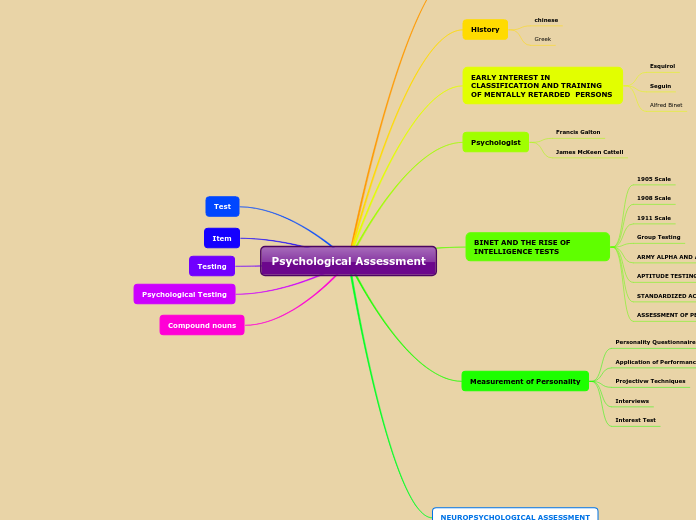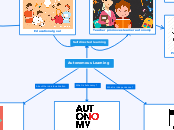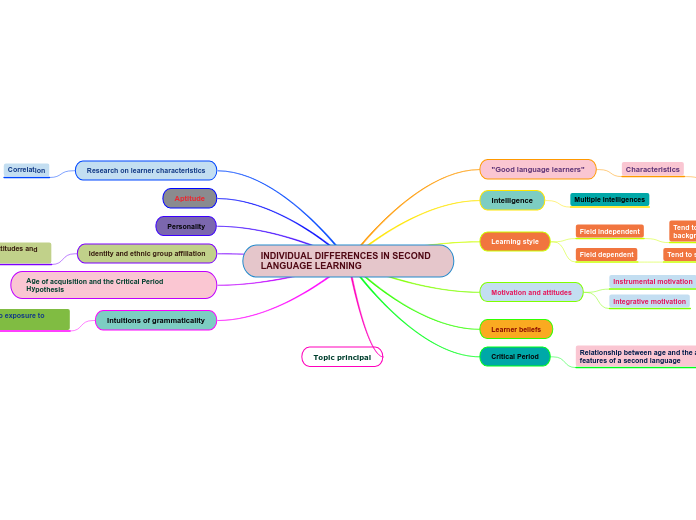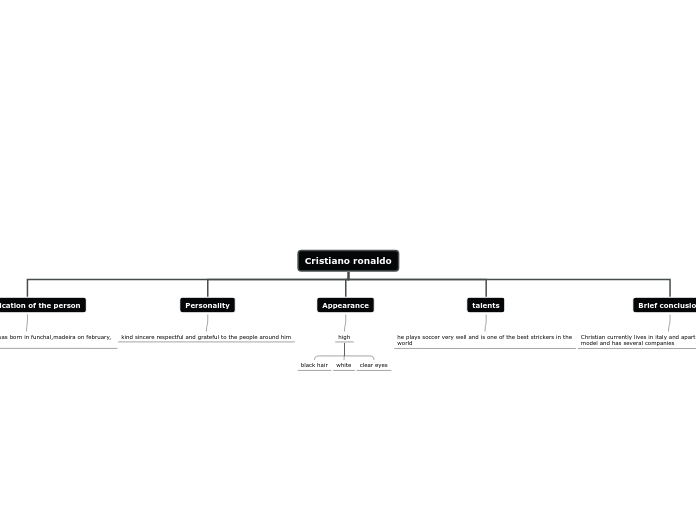Psychological Assessment
A noun is a word that functions as the name of some specific thing or set of things, such as living creatures, objects, places, actions, qualities, states of existence, or ideas.
Compound nouns
Compound nouns are words where two nouns have been stuck together to make a new noun. Compound nouns should be written as one word, without a hyphen.
Psychological Testing
Generic nouns are nouns that are part of a generic statement. Generic nouns can be singular or plural. The opposite of generic nouns is collective nouns.
The difference between definite/indefinite and generic nouns is that in the sentence there must be a blanket statement or question.
Testing
Proper nouns are the names of specific people or places. They should always begin with a capital letter.
Item
A concrete noun is a noun that can be identified through one of the five senses (taste, touch, sight, hearing, smell).
Test
Possessive nouns are nouns which possess something, normally another noun.
NEUROPSYCHOLOGICAL ASSESSMENT
Measurement of Personality
Interest Test
Interviews
Projectivw Techniques
Application of Performance or Situational Tests
Personality Questionnaire or Self-Report Inventory
BINET AND THE RISE OF INTELLIGENCE TESTS
Countable nouns are nouns that can be counted, even if the number might be extraordinarily high.
Uncountable nouns are nouns that come in a state or quantity which is impossible to count; liquids are uncountable, as are things which act
like liquids.
ASSESSMENT OF PERSONALITY
STANDARDIZED ACHIEVEMENT TESTS
APTITUDE TESTING
ARMY ALPHA AND ARMY BETA TESTS
Group Testing
1911 Scale
1908 Scale
1905 Scale
Psychologist
Common nouns are words for people, places or things that aren’t specific (as opposed to a proper noun which refers to only one person, place or thing).
Common nouns can be countable or uncountable, singular or plural.
James McKeen Cattell
Francis Galton
EARLY INTEREST IN CLASSIFICATION AND TRAINING OF MENTALLY RETARDED PERSONS
A noun which refers to a group of things/people.
Alfred Binet
Seguin
Esquirol
History
A noun which cannot be identified by using one of the five senses (taste, touch, sight, hearing, smell).
Greek
chinese
Purposes of tests
Irregular nouns are nouns which don’t follow a spelling pattern when pluralized.
Evaluation
Classification
Selection
Prediction









